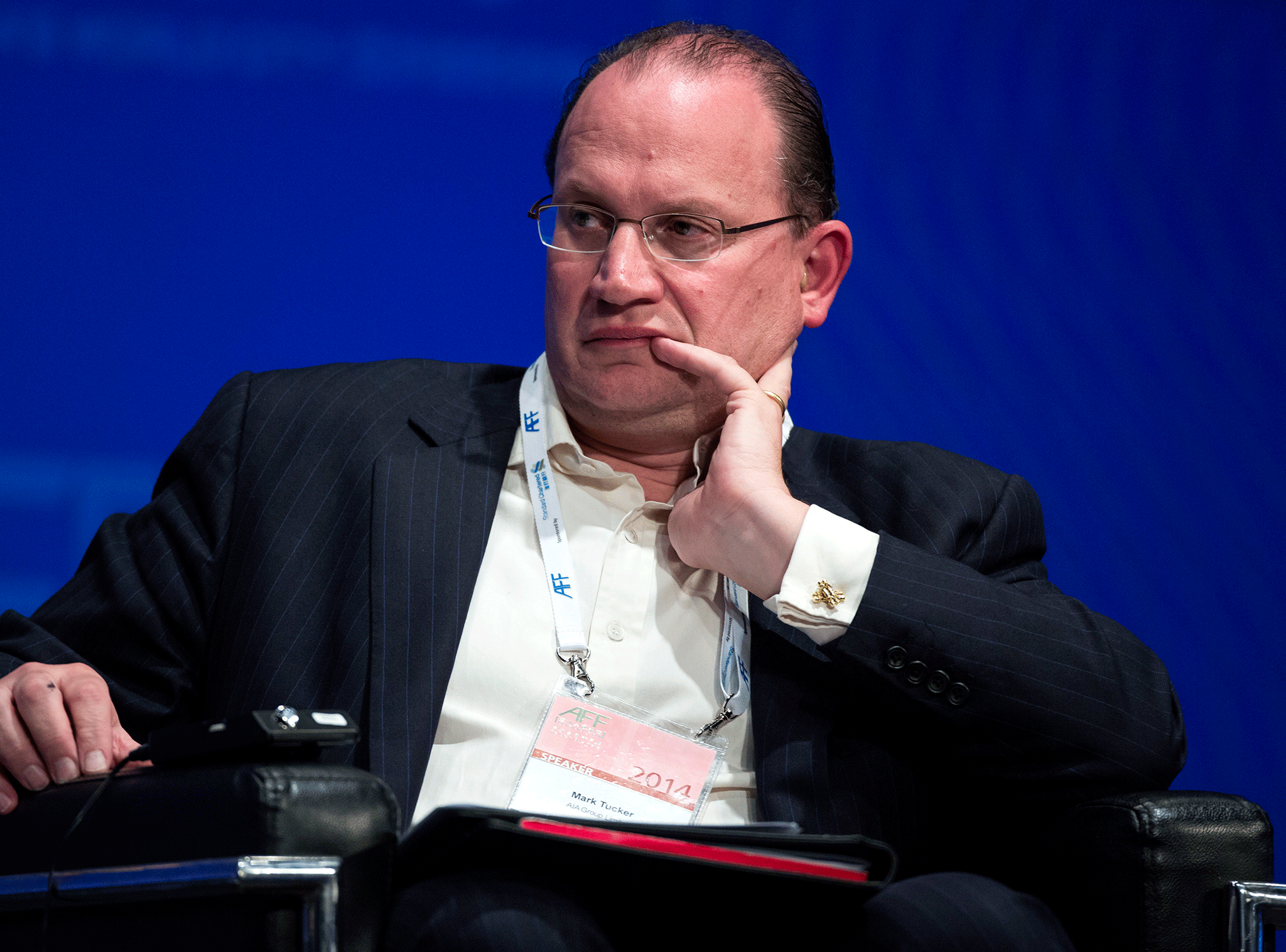HSBC's Mark Tucker set to shake up the bank?
The hard-charging businessman has been the chief executive of two big insurers and is the first external candidate to be appointed chairman of this stuffy banking giant

Your support helps us to tell the story
From reproductive rights to climate change to Big Tech, The Independent is on the ground when the story is developing. Whether it's investigating the financials of Elon Musk's pro-Trump PAC or producing our latest documentary, 'The A Word', which shines a light on the American women fighting for reproductive rights, we know how important it is to parse out the facts from the messaging.
At such a critical moment in US history, we need reporters on the ground. Your donation allows us to keep sending journalists to speak to both sides of the story.
The Independent is trusted by Americans across the entire political spectrum. And unlike many other quality news outlets, we choose not to lock Americans out of our reporting and analysis with paywalls. We believe quality journalism should be available to everyone, paid for by those who can afford it.
Your support makes all the difference.A minor earthquake at HSBC: The bank has appointed its first outsider as chairman.
Given that the new man is Mark Tucker, there may be a few more of those shaking the halls of that institution before very much longer.
The hard charging Mr Tucker is one of those people who have had a succession of senior jobs, any one of which would have been the highlight of a career for anyone else.
Most recently, he’s been chief executive of Asian insurance giant AIA. Before that he was the boss of the Prudential, another very grand, and conservative British company that, like HSBC, has repeatedly tripped over its own hubris.
Mr Tucker also ran the latter’s Asian operation and was finance director of the runaway train known as HBOS under James Cosby for a couple of years, departing in 2005, before things got really unpleasant there.
His timing is something that can’t be faulted. He’s repeatedly found himself in the right place at the right time, which is every bit as important as talent when it comes to landing these sort of jobs.
However, he has also managed to make a success of the jobs he has done and, as an Asia expert who knows the UK scene too, it would look like the bank has got something right for a change, with his appointment. At least on the face of it.
But how will Mr Tucker work out in practice? A former trainee professional footballer, before turning to a career in business via PricewaterhouseCoopers, Mr Tucker is tough, hard nosed, and direct. He’s a man who doesn’t suffer fools gladly.
As such, it will be fascinating to see how he works at HSBC, a deeply conservative and still rather bureaucratic organisation, that has been grappling with a succession of regulatory issues and the legacy of willy-nilly flag planting.
He worked out well for the Prudential, but he was a chief executive there. One of his first jobs at HSBC be to find someone to replace Stuart Gulliver in that role.
While I’ve heard talk of something of a cult of personality around the latter at the bank, the outside view is rather more mixed.
HSBC has repeatedly issued grandiose targets for return on equity - a measure of profitability - and it has repeatedly missed them. Despite job cuts (more than 40,000 under his tenure) and cost cuts, the figure of 10 per cent is now seen as an all but impenetrable ceiling.
The domestically focussed Lloyds Banking Group is already looking in its rear-view mirror at that number. Perhaps that’s why its boss Antonio Horta-Osorio is being talked about as a leading external candidate. He might be better off staying put.
Whoever does take on the job is going to have to work with Mr Tucker. HSBC only started conforming to the traditional model of having a non executive chairman with the appointment of Mr Flint, who was promoted from the position of the bank’s chief financial officer.
He got the job after a nasty bout of corporate infighting that led to the departure of Michael Geoghegan, the first chief executive not to become chairman, and was able to bring some much needed calm to the bank.
Mr Tucker’s blunt and direct style couldn’t be more different from Mr Flint's more collegial approach. Will he be able to take a back seat after running the show at two big companies? That remains to be seen.
There’s a Chinese curse Mr Tucker, with his background working in that country’s backyard, will know: “May you live in interesting times.”
That’s probably applicable to just about all of us right now, but doubly so for those working at HSBC with him on board.
Join our commenting forum
Join thought-provoking conversations, follow other Independent readers and see their replies
Comments